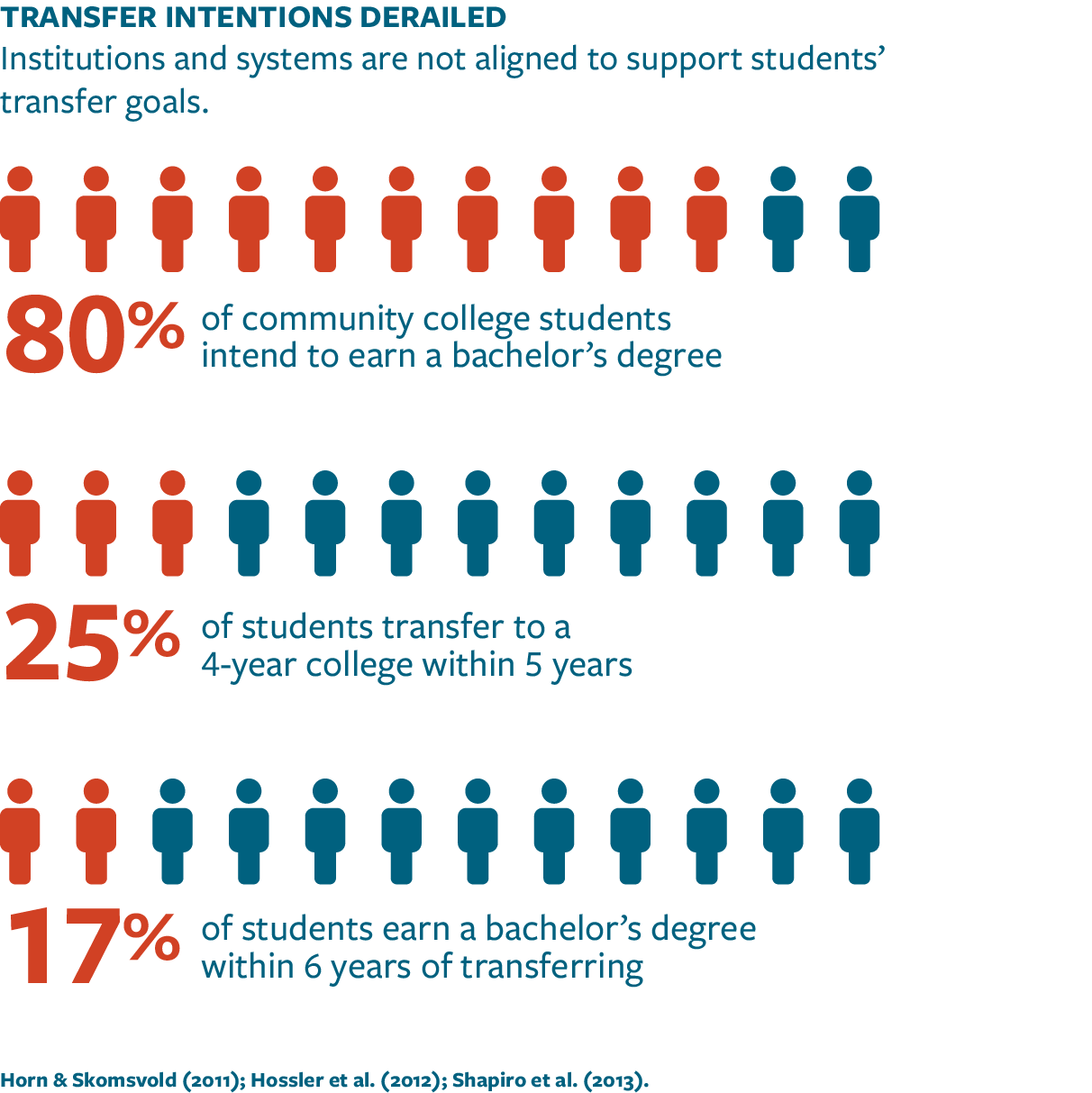
How We See the Problem
Leveraging workforce training, transferring between postsecondary providers and entering or re-entering the workforce are pivotal moments in a learner’s career or academic journey. Institutions and systems can implement policies and practices that inadvertently make these transitions difficult. For example, when curricula don’t align, or information systems are incapable of sharing data effectively, students risk losing credits, momentum and money. The jump from postsecondary education into the workforce also presents challenges, especially when institutions offer programming that does not align with the skills employers need.

Our Three Investment Priorities
Grants to Streamline Key Learner Transitions
Redesigning StudentTracker
Scaling
This grant supports the National Student Clearinghouse in rebuilding StudentTracker, the primary data platform used by educational systems and institutions to track student-level postsecondary enrollment in the United States. The new StudentTracker will reduce the technological expertise required for users, consolidate data into a single platform and provide enhanced reports and visualized analytics with the goal of significantly expanding access and utilization nationwide.
Creating Pathways to Mid-Level Tech Careers and Educational Opportunity
Exploration
This grant supports Apprenti in determining the viability of a formal partnership with a four-year degree granting institution for the purpose of providing a pathway to a bachelor's degree for low-income and underrepresented learners who complete registered technology apprenticeships.
Career Advising Tools and Outreach for Low-Income College Graduates-Planning Phase
Exploration
This grant supports the University of Virginia in developing a personalized job recommendation tool and intrusive advising resources designed to improve employment outcomes for low-income community college graduates.
College Promise Careers Institute & Expanding Ecosystems for Promise Student Support
Scaling
This grant supports the College Promise Campaign in expanding their efforts to build awareness of supports for specific College Promise student populations and their work focused on elevating the role of postsecondary education in addressing workforce and economic development needs.
Assessing Training Success through Place-Based and Geographic-Agnostic Program Models
Scaling
This grant supports Merit America in testing service delivery models for learners engaged in place-based programs and those engaged in geographic-agnostic programs to compare learner completion and job placement outcomes and inform plans for scale.
Supporting a Multi-State Education-Workforce Data Infrastructure
Scaling
This grant supports the Coleridge Initiative in developing and delivering training classes for two states to build capacity for state education and workforce agencies in the use of data to improve education and workforce transitions. The Coleridge Initiative will partner with state-based public policy staff and college-based data science programs within each state to develop curricula, deliver ongoing applied data training to state agency staff and build new analytical products to inform the design and development of effective education and training policy and practice.
Strengthening Guided Pathways through Workforce
Scaling
This grant supports The Aspen Institute in operationalizing the Ascendium-funded Workforce Playbook by engaging community college leaders in a variety of contexts through additional curricular materials and embedding the Workforce Playbook into the existing guided pathways framework.
Degrees When Due
Validation
This grant supports the Institute for Higher Education Policy in conducting the impact research component of the Degrees When Due initiative, a national effort to advance degree reclamation for the “some-college, no-degree” population. This research includes an examination of current degree reclamation strategies and student-level postsecondary and employment outcome data.
Implementing Competency-Based Education at Scale
Exploration
This grant supports the Kentucky Community and Technical College System in developing and executing an in-depth planning process to understand the system, academic and structural changes necessary for a statewide implementation of competency-based education within its general education, career and technical and workforce training programs.
Evaluation of Veterans Credentialing Pilot Initiative
Validation
This grant supports DVP-Praxis in evaluating the Military Credentialing Advancement Initiative-Pathways Project, an initiative of Lumina Foundation. The Pathways Project will support the creation of new pathways between military occupational competencies and high-quality civilian credentials, and the formative evaluation will highlight learnings from the pilot sites to inform the field and encourage broader recognition of military training and experience.


